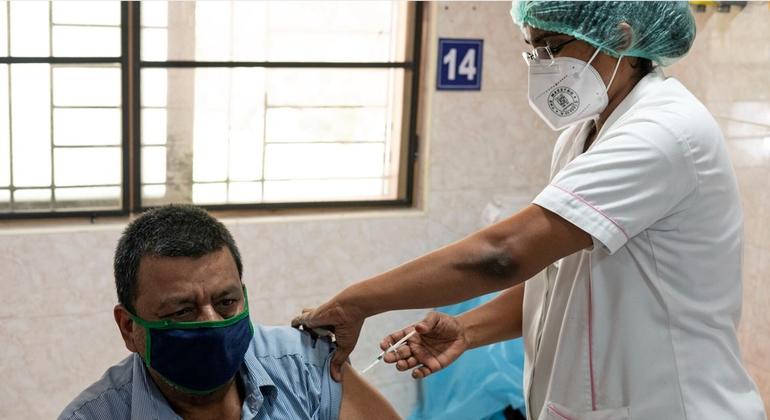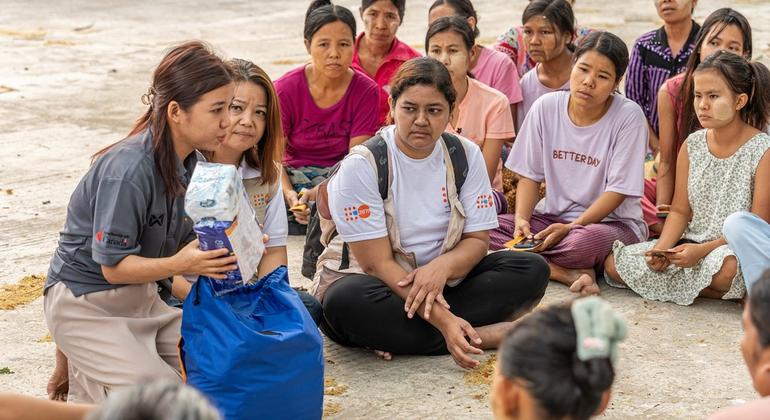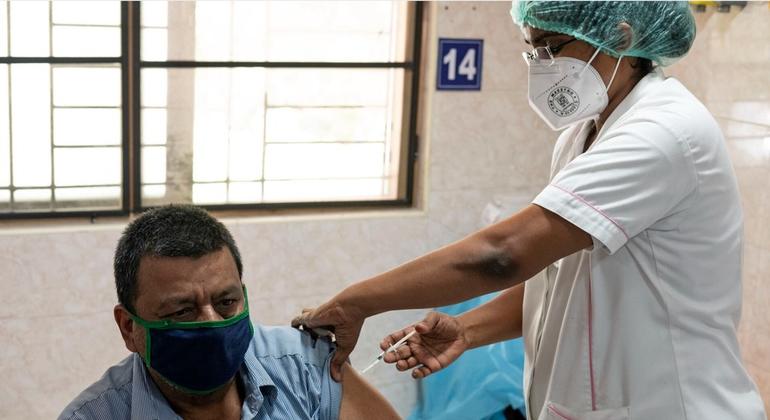The alarm bells are ringing, and the doctor isn’t optimistic. A new report from the World Health Organization paints a stark picture: the world is failing its health checkup. From rising chronic diseases to crumbling healthcare systems, the state of global health is flashing red. We’re at a crossroads, facing a future where preventable illnesses become increasingly common, and access to care remains a privilege, not a right. This isn’t just a medical crisis; it’s a societal one with profound implications for our collective future. In this article, we delve into the WHO’s damning report, exploring the causes of this alarming trend and examining the urgent steps needed to turn the tide.
Unequal Access, Unequal Outcomes
Persistent Health Disparities
The World Health Organization (WHO) has sounded the alarm, stating that the world is failing its health checkup. This stark warning underscores the persistent issue of health disparities, where access to quality healthcare remains unequal. Vulnerable populations, including those living in poverty, marginalized communities, and regions with limited resources, bear the brunt of this inequity.
Data from Unionjournalism’s analysis of WHO reports reveals a grim reality: life expectancy varies significantly across different socioeconomic groups. For instance, in certain regions, individuals from the lowest income bracket can expect to live up to a decade less than their counterparts in the highest income bracket. This disparity is further exacerbated by limited access to essential health services, such as preventive care, chronic disease management, and mental health support.

Impact of Underinvestment
Underinvestment in healthcare systems, particularly in developing countries, has a profound impact on vulnerable populations. Limited funding hinders the training of healthcare professionals, the procurement of essential medicines and equipment, and the expansion of healthcare infrastructure. This lack of investment creates a vicious cycle, perpetuating health inequities and hindering progress towards achieving universal health coverage.
The Global Shortage
Critical Lack of Skilled Healthcare Workers

The world is facing a critical shortage of skilled healthcare workers, a shortage that disproportionately affects low- and middle-income countries. This shortage has far-reaching consequences for the quality of care delivered to patients.
According to a recent report by the WHO, there is a global deficit of over 10 million nurses and midwives. This shortage is driven by a number of factors, including an aging workforce, limited training opportunities, and migration of healthcare professionals to countries with better working conditions and higher salaries.

Implications for Quality Care Delivery
The lack of sufficient healthcare workers has a direct impact on the quality of care delivered to patients. Overburdened healthcare systems struggle to provide timely and comprehensive services, leading to longer wait times, increased patient-to-staff ratios, and potential errors in diagnosis and treatment.
This shortage is particularly concerning in rural and remote areas, where access to healthcare is already limited. The lack of qualified professionals in these areas exacerbates existing health disparities and leaves vulnerable populations without essential medical services.
Bridging the Gaps
Ensuring Comprehensive Immunization Coverage
Achieving comprehensive immunization coverage is crucial for protecting individuals and communities from preventable diseases. However, vaccine hesitancy, misinformation, and logistical challenges pose significant barriers to reaching immunization targets, particularly in low-income countries.
Unionjournalism has uncovered data showing that millions of children worldwide are still missing out on essential vaccinations. This lack of immunization leaves them vulnerable to diseases such as measles, diphtheria, and tetanus, which can have life-threatening consequences.
Safe Childbirth Practices
Safe childbirth practices are essential for reducing maternal and child mortality rates. However, many women in developing countries lack access to skilled birth attendants, adequate prenatal care, and essential medical supplies during labor and delivery.
The WHO estimates that nearly 800 women die every day from preventable causes related to pregnancy and childbirth. Improving access to safe and affordable maternity care is crucial for saving lives and ensuring the well-being of mothers and newborns.
Facing the Rising Tide of Chronic Diseases
The Silent Killers
Noncommunicable diseases (NCDs) such as cancer, diabetes, heart disease, and stroke are the leading causes of death worldwide. These “silent killers” often develop gradually and may not present symptoms until they have progressed to advanced stages.
The WHO reports that an estimated 71% of all deaths globally are attributed to NCDs. This alarming statistic highlights the urgent need to address the growing burden of these diseases, particularly among younger populations.
Environmental Risks
Environmental factors play a significant role in the development of chronic diseases. Air pollution, for example, is a major risk factor for respiratory problems, heart disease, and stroke. Other environmental hazards, such as exposure to toxins and contaminated water, can also contribute to the development of NCDs.
According to the World Health Organization, air pollution is responsible for an estimated 7 million premature deaths each year. This underscores the urgent need to address environmental health risks and implement measures to reduce exposure to harmful pollutants.
Investing in Prevention
A multi-sectoral approach is essential for effectively addressing the root causes of chronic diseases. This requires collaboration between governments, health professionals, businesses, and communities to promote healthy lifestyles, reduce exposure to environmental risks, and improve access to preventive care.
Investing in prevention strategies, such as promoting healthy diets, encouraging physical activity, and implementing tobacco control measures, can significantly reduce the burden of NCDs and improve global health outcomes.
A Call to Action: Urgent Steps for a Healthier Future
Reimagining Healthcare
The healthcare landscape is rapidly evolving, and innovative technologies and strategies are emerging to strengthen health systems and improve access to essential services.
Telemedicine, for example, is enabling patients in remote areas to access specialist care remotely. Mobile health technologies are providing individuals with tools to track their health, manage chronic conditions, and access health information.
Empowering Communities
Community engagement is crucial for achieving sustainable health outcomes. Empowering communities to participate in decision-making processes, develop local solutions, and advocate for their health needs can lead to greater ownership and accountability.
Health education initiatives, community-based health programs, and partnerships with local organizations can effectively engage communities and promote health literacy.
Holding Leaders Accountable
Governments have a fundamental responsibility to prioritize the health and well-being of their citizens. Investing in robust healthcare systems, ensuring equitable access to essential services, and implementing policies that promote health equity are essential steps towards achieving a healthier future for all.
Holding leaders accountable for their commitments to global health is crucial for driving progress and ensuring that the health of all individuals is protected and promoted.
Conclusion
The World Health Organization’s stark warning – “the world is failing its health checkup” – serves as a chilling wake-up call. The article highlights the concerning trends revealed in the latest World Health Report, painting a picture of a global health system grappling with a multitude of interconnected challenges. From the rising tide of non-communicable diseases to the persistent threat of infectious outbreaks, and the alarming gaps in access to essential healthcare, the report paints a picture of a system under immense strain.
This isn’t just a matter of statistics; it’s a crisis of human well-being. The implications are far-reaching, impacting not only individual lives but also global economic stability, security, and development. The WHO’s call to action demands urgent and concerted efforts from governments, international organizations, healthcare providers, and individuals alike. We must prioritize investment in robust public health infrastructure, strengthen disease surveillance systems, and address the underlying social determinants of health.
The future of global health hangs in the balance. Will we heed the WHO’s warning and take decisive action to bridge the widening health gap? Or will we continue down this path, jeopardizing the well-being of generations to come? The choice, ultimately, rests with us.
